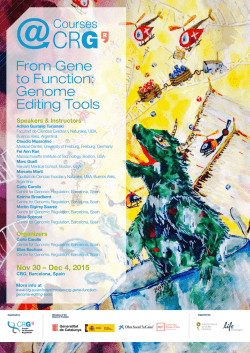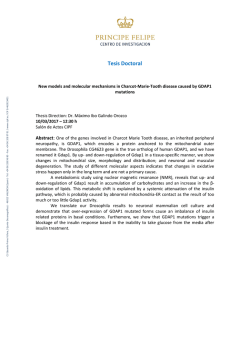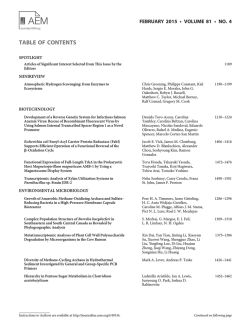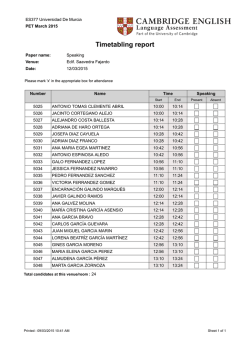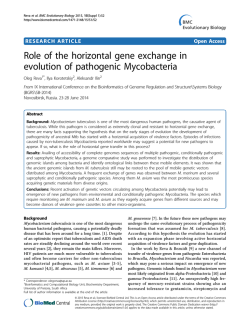
Doctoral Thesis
Doctoral Thesis C/ Eduardo Primo Yúfera, 3 (junto Oceanográfico) · 46012 VALENCIA (Spain) · Tel: +34 96 328 96 80 - Fax: +34 96 328 97 01 / www.cipf.es / CIF G-46/923421 Functional enrichment analysis methods for genomic studies Francisco García García Computational Genomics Lab Tutors of the doctoral thesis: Joaquín Dopazo and David Montaner Date: 07/10/2016 - 12h Place: Salón de Actos CIPF Abstract: Computational methods play a key role for the resolution of clinical and biological problems. Generation of large amounts of data from high-throughput technologies and the increase of accessible information from biological databases have boosted the demand for new methodologies able to link both elements. To address this need for the biomedical research community, this work presents a series of contributions in the field of Functional Genomics to help to researchers in the functional interpretation of genomic data analysis. In the first part of this thesis, we describe the development and implementation of an enrichment analysis oriented to miRNAs studies. These small RNA molecules have been implicated in numerous diseases. However, it remains largely unknown, its specific impact on biological pathways and cellular phenotypes in addition to its precise role in the regulation of genes. To improve and facilitate the investigation of the functions and miRNA-gene regulation, we generated a functional enrichment method for miRNAs studies to interpret such results. The flexibility of this approach allows us the inclusion of other relevant variables in the study (weights of biological elements, relationships between miRNA-gene ...) and a multidimensional approach integrating different genomic data. Functional enrichment analysis of genomic data provides results that are part of the assessed experiment. However, the small sample size of most of the experiments and its marking to a specific scenario, represent limiting factors when evaluating such studies. Therefore, to improve the integration of various experiments in the functional context and provide clarity in the interpretation, in the second part of this thesis we present a meta-analysis method to detect functional results of global interest, reducing the effect of specific experiment. This methodology also checks the consistency of the experiments and generates an estimate of the effect having a greater statistical power than that obtained for each experiment separately. Both approaches allow us a better interpretation of the analysis of genomic data in the context of Systems Biology. CON LA FINANCIACIÓN DE:
© Copyright 2026
